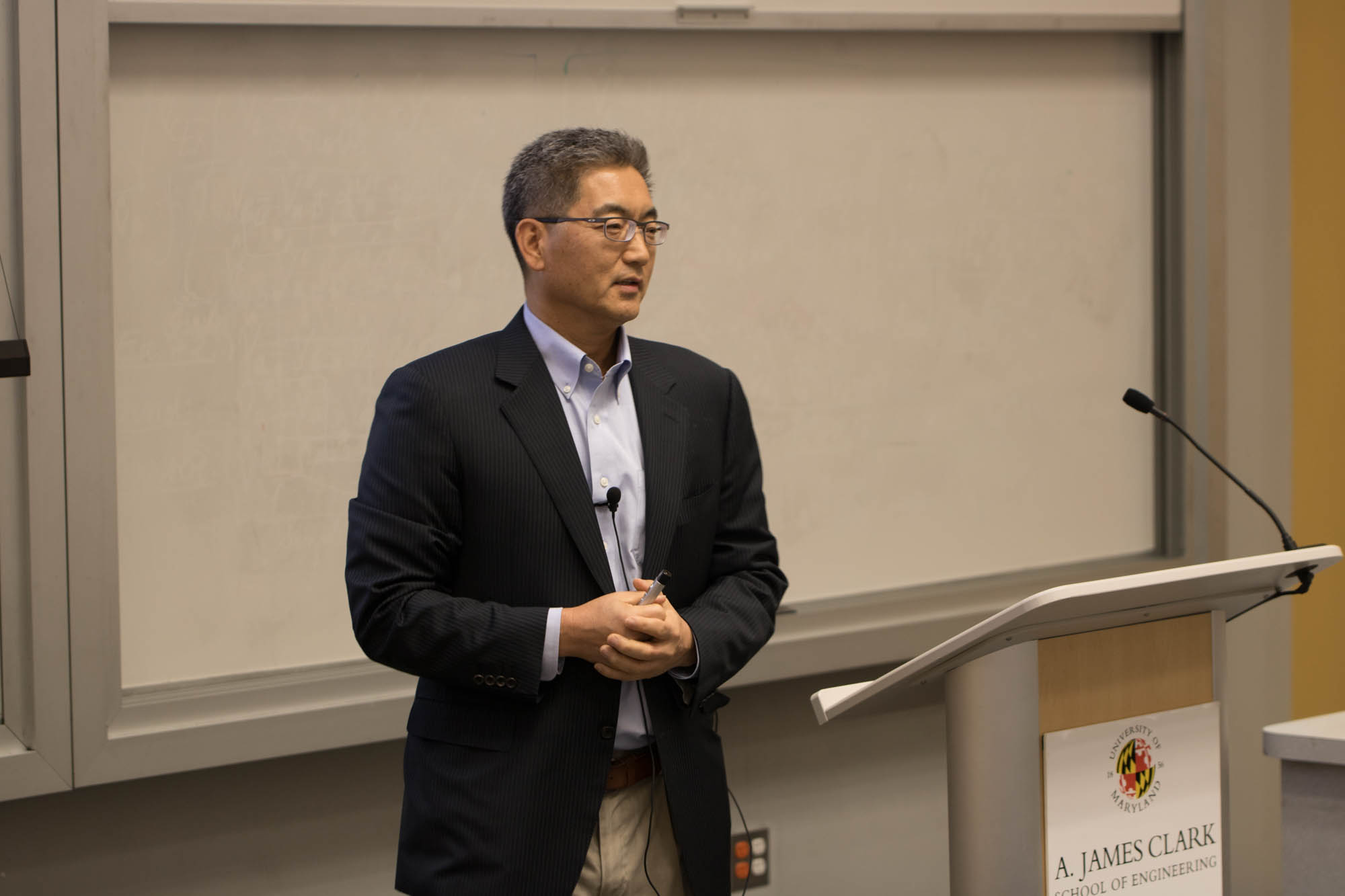Kenneth Lee always had a passion to run his own technology company. So he started one — four different times.
Lee, the founder and CEO of VanGogh Imaging, a 3D computer vision software company, spoke at the University of Maryland on Thursday to share his experiences as a technology entrepreneur.
“It is so challenging,” Lee said. “If you just want to make money, there are so many other things you can do.”
The company’s technology captures and provides a 3D rendering of objects, according to their website.
[Read more: Quantum computers aren’t practical yet — but this UMD-led team wants to change that]
VanGogh, which Lee founded in 2009, is also working to create 3D images and avatars for smartphones. Among other applications, this could allow shoppers to sample clothes on an avatar before buying them online, said Greg Werth, the vice president of marketing at the McLean, Virginia-based company.
“The reason we are surviving to date is because it is a big problem to solve and we were one of the first to start doing this,” Lee said. “We are constantly trying to go after something that’s a little better.”
About 30 students and faculty attended the event in the Jeong H. Kim Engineering Building to learn about Lee’s experiences as well as what it takes to start a technology business. During his lecture, Lee walked the audience through each of his start-ups, noting the successes and failures of each.
“You need to be very honest with yourself,” Lee said. “When you make a mistake, you need to acknowledge that mistake. If something’s going really well, stay with that.”
[Read more: UMD researchers look to improve infrastructure recovery after natural disasters]
It all began in high school, when Lee, inspired by Steve Jobs, spent as much time as he could programming in his school’s computer lab.
After graduating from Johns Hopkins University and completing a master’s at George Mason University, Lee started the telecommunications technology company IgT in 1991 and sold it for $55 million seven years later. He said he regretted leaving the company too early, right before the technology really took off.
FastTide, a company Lee started in 1999 that worked on improving the operation of networks, lasted two years. He said the company failed because it lacked uniqueness in such a competitive field.
“It literally became a true nightmare,” he said. “Not only a personal failure, it was a failure for everyone else [involved with the company].”
In 2001, he founded Anka Systems, which provides systems for managing digital medical records specifically in ophthalmology. He sold this company to Topcon in 2007.
During the lecture, Lee shared several tips for starting a successful technology company including selecting the right team, having goals for futuristic technology and creating easy-to-use and reliable products.
“Every opportunity is going to be a little different,” Werth added, “and the way every opportunity is attacked, there’s some commonalities, but there’s no real instruction book.”
Austin Plummer, a senior electrical engineering major, said he attended the event because he has a strong interest in tech-related entrepreneurship. He wanted to gain advice from Lee on how to succeed in the field.
“He has a lot of experience in the field of tech-startups and working with different startups and so just seeing from his stories what they did right, what they did wrong, mistakes and things of that nature,” Plummer said. “I can apply it what I want to do and be more cautious rather than going in blind.”
The event was part of the Whiting-Turner Business & Entrepreneurial Lecture series—a program hosted by the A. James Clark School of Engineering that showcases various leaders and enterprises in technology. In March, Michael Simon, the co-founder, CEO and president of the cybersecurity company CryptoniteNXT, spoke for this series.
Michelle Lane, a program management specialist with the engineering school, said she’s hopeful the lecture left students with helpful tips on breaking into technology fields.
“I hope they learn something that they don’t already know,” said Lane. “Specifically for Mr. Lee, something about entrepreneurship because I know that he has a lot of experience with the technology industry and start-ups.”
The Whiting-Turner Contracting Company sponsors the series, which began in 1995. There will be one more speaker this semester, Lane said.
“Try to be the first. It’s usually the first or the last, especially in the tech business,” Lee said. “It’s going to take time. You have to say just you’re going to do this and then do it.”



